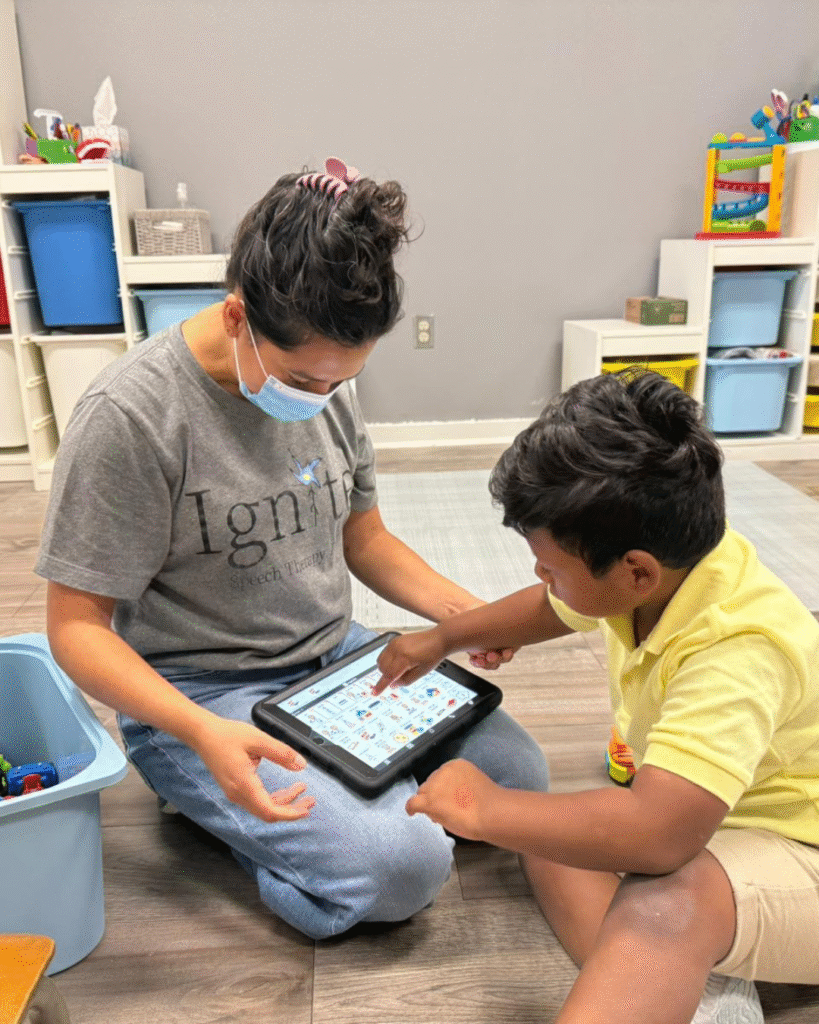Autism or Speech Delay: How to Understand the Differences and Support Your Child
Why parents wonder if it is autism or speech delay
For many parents, noticing that their child does not develop communication skills like other children of the same age generates worry and confusion. Questions arise such as: “Is it just a speech delay?” or “Could it be autism?”. These doubts are common, and you are not alone. Thousands of families around the world face the same uncertainty.
Understanding whether a child has a speech delay or shows signs or symptoms of autism is crucial. Both conditions affect communication, but they are not the same. Knowing how to recognize the differences and when to seek professional help can provide clarity and hope.

Differences between speech delay and autism spectrum disorder
Speech delay refers specifically to slower development in producing sounds, words, or sentences compared to expected milestones. A child with speech delay may understand language but struggle to express it.
Autism, or more precisely autism spectrum disorders (ASD), are neurodevelopmental conditions that affect communication, social interaction, and behavior. Children on the spectrum may also present speech delay, but their challenges go beyond speech and include how they interact with others and their environment.
In short, while a child with only speech delay may catch up to peers with support and therapy, a child with autism usually shows broader patterns of developmental differences.
Signs or symptoms of autism compared to speech delay
When asking “Autism or Speech Delay?” it is essential to look at the whole picture.
Some typical signs of speech delay are:
- Limited vocabulary for their age.
- Difficulty forming sentences.
- Speech that is hard to understand.
By contrast, the most common signs or symptoms of autism include:
- Little or no eye contact.
- Not responding to their name.
- Preference for routines and repetitive behaviors.
- Difficulty engaging in pretend or social play.
- Unusual reactions to sounds, textures, or lights.
A child with autism may also show speech delay, but unlike an isolated delay, the social and behavioral patterns are key to distinguishing it.
Asperger syndrome within the autism spectrum
In the past, Asperger syndrome was considered a separate condition. Today it is included within the autism spectrum. Children and adults who previously received this diagnosis often have average to above-average intelligence and strong language skills, but face difficulties with social communication, flexibility, and sensory sensitivities.
Understanding this broader perspective of Asperger syndrome within the autism spectrum helps parents see that autism is not a single condition, but rather a range of experiences and abilities.
How professionals distinguish autism from speech delay
A pediatrician or developmental specialist first evaluates the child’s milestones and medical history. A speech-language pathologist may analyze how the child uses sounds, words, and sentences.
If autism is suspected, a team approach is often used that includes psychologists, neurologists, and therapists. Standardized tests are applied, interactions are observed, and parents are interviewed about the child’s everyday behavior.
The goal is not to “label” the child, but to identify whether the difficulties are due only to a speech delay, to autism, or to a combination of both. Early diagnosis significantly improves outcomes.
Most effective treatments and supports
- For speech delay: speech therapy, shared reading, songs, and daily communication exercises.
- For autism spectrum disorders: a combination of therapies such as applied behavior analysis (ABA), occupational therapy, and social skills training. Speech therapy is also part of the plan, with a broader focus on communication and interaction.
- For Asperger syndrome: interventions focus on improving social interaction, flexibility, and coping strategies for sensory sensitivities.
It is important to remember that every child is unique, and therapy is most effective when adapted to their individual needs.
What parents can do at home
Whether your child has a speech delay or is on the autism spectrum, your role is fundamental. Here are some practical ideas:
- Talk to your child during daily activities, describing what you are doing.
- Read picture books and encourage pointing and naming objects.
- Use positive reinforcement when your child tries to communicate.
- Limit screen time and promote face-to-face interactions.
- Observe not only speech but also social participation and play patterns.
By staying involved and patient, you create a safe environment where your child can grow and learn.
A message of hope for families
Facing the question of whether it is autism or speech delay can feel overwhelming, but it is important to remember that neither condition defines your child’s value or future. With the right support, children with speech delay often catch up to their peers, and children on the autism spectrum can thrive with early intervention and understanding.
Every step your child takes in communication—whether a new word, a smile, or eye contact—will be a shared victory. The journey may look different, but with love, guidance, and professional help, progress is always possible.
If you found this article helpful and want to go deeper, I recommend reading what causes a speech delay, where you will find detailed explanations about medical and neurological factors. In addition, you can complement this information with the guide on speech delay at 2 years old, focused on milestones and early warning signs.
Williams syndrome story
Stories based on our real life, filled with joy, faith, and strength for the soul….
